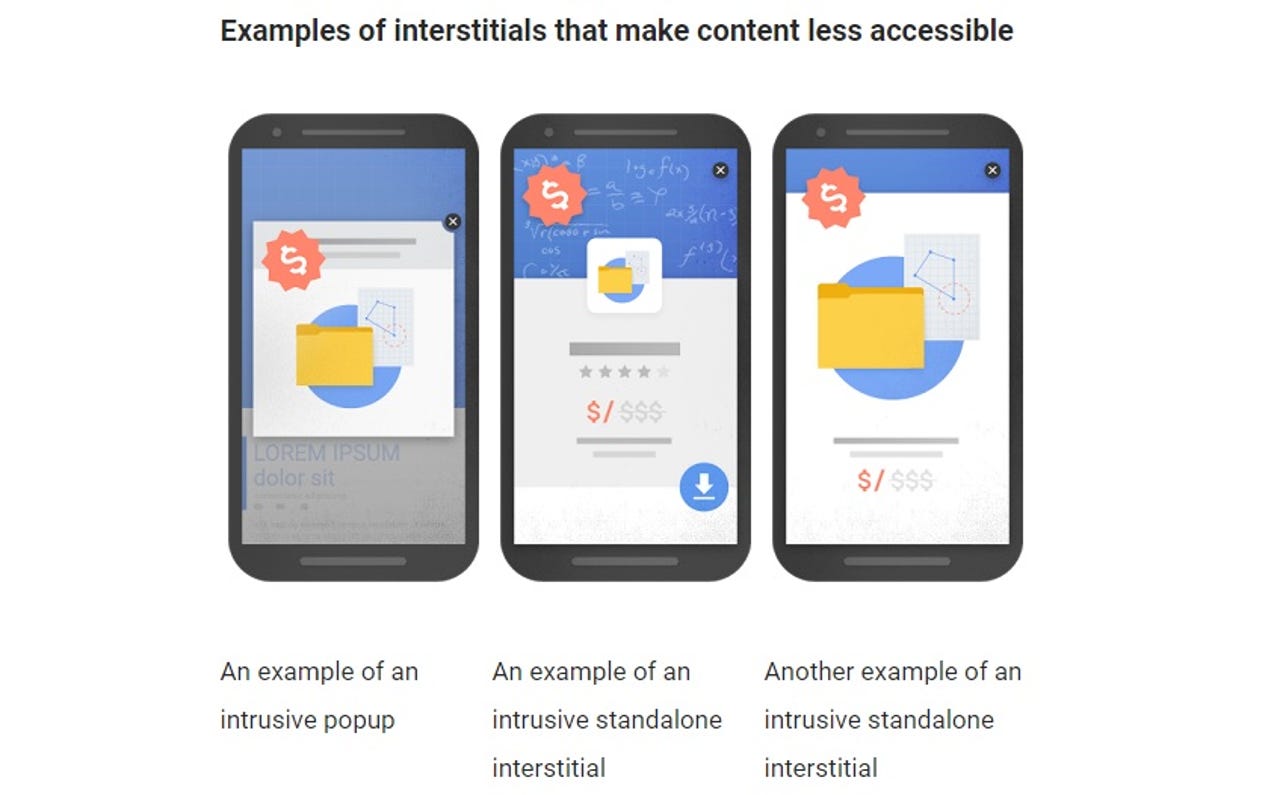Google to crack down on intrusive mobile ads

Starting in January 2017, Google plans to crack down on intrusive ads that interfere with mobile content, the internet giant said Tuesday.
Certain pages with pop-ups that interfere with content, called interstitials, may not rank as highly in search results, Google product manager Doantam Phan explained in a blog post. Some examples of interstitials that Google plans to discourage are pop-ups that cover a page's main content, standalone interstitials that have to be dismissed before accessing the main content, and interstitials that dominate the "above the fold" portion of a mobile page -- an ad that would force a user to scroll down to view the page's main content.

Phan stressed that this is just one of hundreds of "ranking signals" Google uses to rank pages. "The intent of the search query is still a very strong signal, so a page may still rank highly if it has great, relevant content," Phan wrote.
Last year, Google took steps to discourage interstitials that asked a user to install a mobile app. "As we continued our development efforts, we saw the need to broaden our focus to interstitials more generally," Phan wrote. That initial effort is now combined with this new, broader check on interstititials.
There are some types of interstitials that will not be affected by Google's new "signal." Those include pop-ups that carry some legal obligation (such as a prompt to verify a user's age), login dialogs on sites where content isn't publicly indexable, or banners that use a "reasonable" amount of screen space and are easily dismissable.